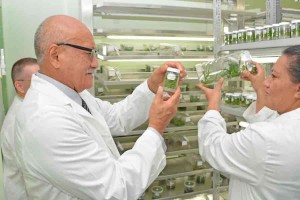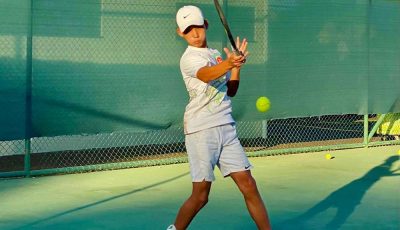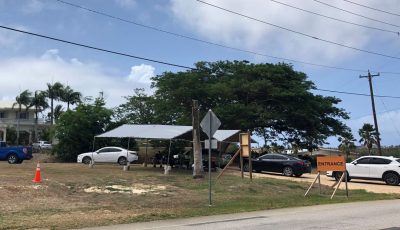SPC hosts Fiji president at plant, tree gene bank

The President of Fiji, Jioji Konusi Konrote, visits the Center for Pacific Crops and Trees facility in Narere last week. (Contributed Photo)
SUVA, Fiji—The Pacific Community hosted the President of Fiji, Jioji Konusi Konrote, at its Center for Pacific Crops and Trees facility in Narere last week.
The center is the Pacific’s only internationally recognized gene bank and houses over 2,000 accessions, including the largest collection of taro diversity in the world.
Over the past 12 years, the center has distributed over 70,000 tissue culture derived plantlets to 51 countries, including 22 Pacific countries and territories.
The center also supported the Fiji government’s response and recovery efforts by supplying planting material to the Ministry of Agriculture in the immediate aftermath of Tropical Cyclone Winston, which devastated the country last year.
During the brief tour of the facility, Konrote, who was accompanied by Fiji’s roving ambassador and high commissioner to the Pacific Islands, Litia Mawi, had the opportunity to witness how the center conserves and provides access to the region’s valuable plant genetic diversity.
“SPC is honored to host…President Konrote. Fiji is a valuable member of the organization and hosts the largest of SPC’s regional campuses,” Pacific Community director-general Dr Colin Tukuitonga said. “The center’s location in Fiji ensures close engagement and collaboration with local stakeholders including Fiji’s Ministries of Agriculture, Forests and Fisheries, Biosecurity Authority of Fiji for SPC’s work in plant genetics, and support for research undertaken at the Koronivia Research Station.”
SPC, through the center, also provides technical support to Fiji in relation to the United Nations Food and Agriculture Organization Treaty on Plant Genetic Resources for Food and Agriculture, which contributes to sustainable food security.
In 2014 the center partnered with the government of Fiji and with Australian assistance to establish the Ministry of Agriculture’s Plant Tissue Culture Lab at the Koronivia Research Station by providing planting material for climate change adaptation and mitigation.
Conservation is the core business of the center, which also maintains over a dozen culturally and economically important food crops including banana, breadfruit, cassava, sweet potato and yam.
Formerly known as the Regional Germplasm Center in 1998, CePaCT was established in 2007 with support from the government of Australia through the Australian Agency for International Development, the Australian Center for International Agricultural Research and the European Union. (SPC)



























